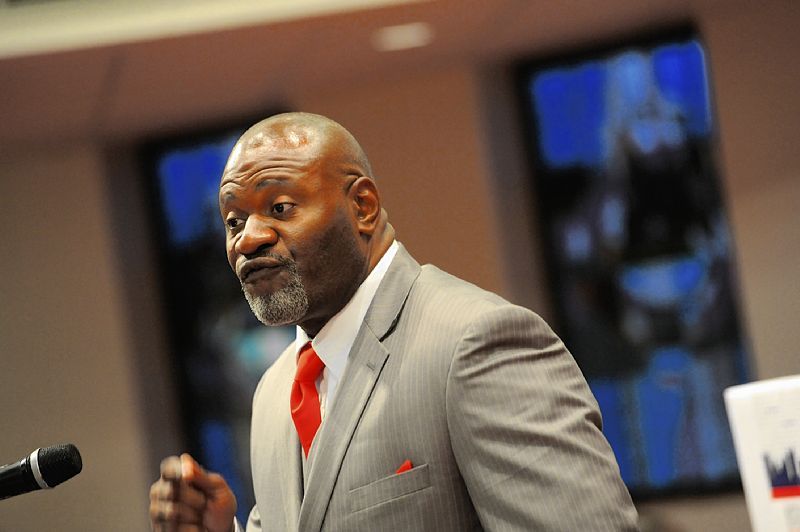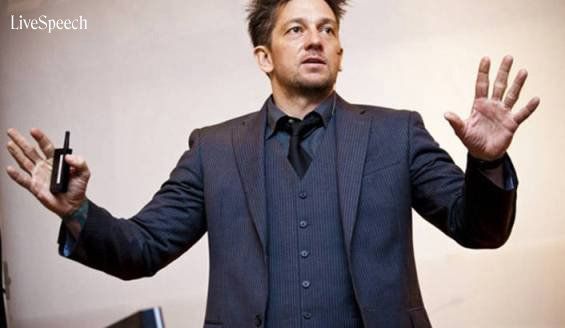The nervousness of many men and women in addressing an audience is partly due to a lack of proper elocutionary training. They have no knowledge of the speaking voice and its use, no facility of musical expression, and no idea of what to do with their hands and arms.
People do not come to realise the importance of this kind of training until they have actually tested themselves before an audience — and failed.
Then, perhaps, it dawns upon them that the art of public speaking, like any other art, must be developed first through study and then perfected through practice. Usually, the two are taken simultaneously.
[1] Give all aspects equal attention
A writer says, "My subject is not elocution, or emphasis, or dramatic reading, or gesticulation, but public speaking.'' He forgets that he cannot properly consider one without the other. The public speaker is deeply concerned with all the elements of elocution—of inflection, emphasis, pausing—and he cannot be a good speaker if he disregards any one of these.
In this study there must, of course, be taste and judgment. A man's elocution, although important, is not to be prominent. Proper expression will not attract attention to itself. The purpose of the study of elocution is ultimately so to free the speaker's mind that he can safely abandon himself to spontaneous expression.
This knowledge of technique is an essential part of all art. The painter, musician, sculptor, architect, writer, no less than the orator, must at first be conscious of the principles that underlie his work, since it is the perfection of this knowledge that finally gives him perfect freedom.
[2] Be rich in words
A large working vocabulary is a valuable aid to self-confidence. The speaker is not hampered by a lack of the right word, nor is he embarrassed by poverty of language. Should his memory fail regarding one set of words, he promptly brings forward others to take their places.
One of the best ways to amass a fund of such words is to read aloud daily two or more pages from some master stylist, and carefully note his use of language. Reading aloud gives the additional advantage of hearing the words, familiarity, and flexibility by fitting them to the mouth parts—to the organs of articulation.
[3] Work on your voice
The voice receives much of its quality from the lips, tongue, palate and throat. If these are held rigidly, the voice will be of like character. In very earnest argumentation the speaker should be cautious about contracting the muscles of the mouth and throat. This is the time to be particularly careful to give the vocal apparatus its greatest possible freedom, and to keep the key of the voice low.
The speaker may be intense, but not loud; he may enforce, but not threaten; and, above all, his voice should accompany, not lead, his argument.
There are times when a speaker must express himself with unusual feeling. The power of the mind and the earnestness of the speaker will project themselves into his eyes, mouth, voice, gesture, perhaps into a single finger, and this passion made so manifest will the more likely become aroused in the hearer. But in whatsoever manner his subject may require him to speak; he must not violate elocutionary canons but do all with becoming grace and skill.
Cicero's advice to the student of oratory may be followed to advantage:
"The qualities that attract favour to the orator are a soft tone of voice, a countenance expressive of modesty, a mild manner of speaking; so that if he attacks any one with severity, he may be seen to do so unwillingly and from compulsion.
"It is of peculiar advantage that indications of good nature, of liberality, of gentleness, of piety, of grateful feelings, free from selfishness and avarice, should appear in him; and everything that characterises men of probity and humility, not acrimonious, nor pertinacious, nor litigious, nor harsh, very much conciliates benevolence, and alienates the affections from those in whom such qualities are not apparent.
"The contrary qualities to these, therefore, are to be imputed to your opponents. This mode of address is extremely excellent in those causes in which the mind of the judge cannot well be inflamed by ardent and vehement incitation. Energetic oratory is not always desirable, but often smooth, submissive, gentle language, which gains much favour for the defendants, a term by which I designate not only such as are accused, but all persons about whose affairs there is any litigation. For in that sense people formerly used the word."
— Marcus Tulius Cicero (Roman Orator and Politician)
Adapted from “How to Develop Self-Confidence in Speech and Manner” by Grenville Kleiser [Funk and Wagnalls, 1910]










